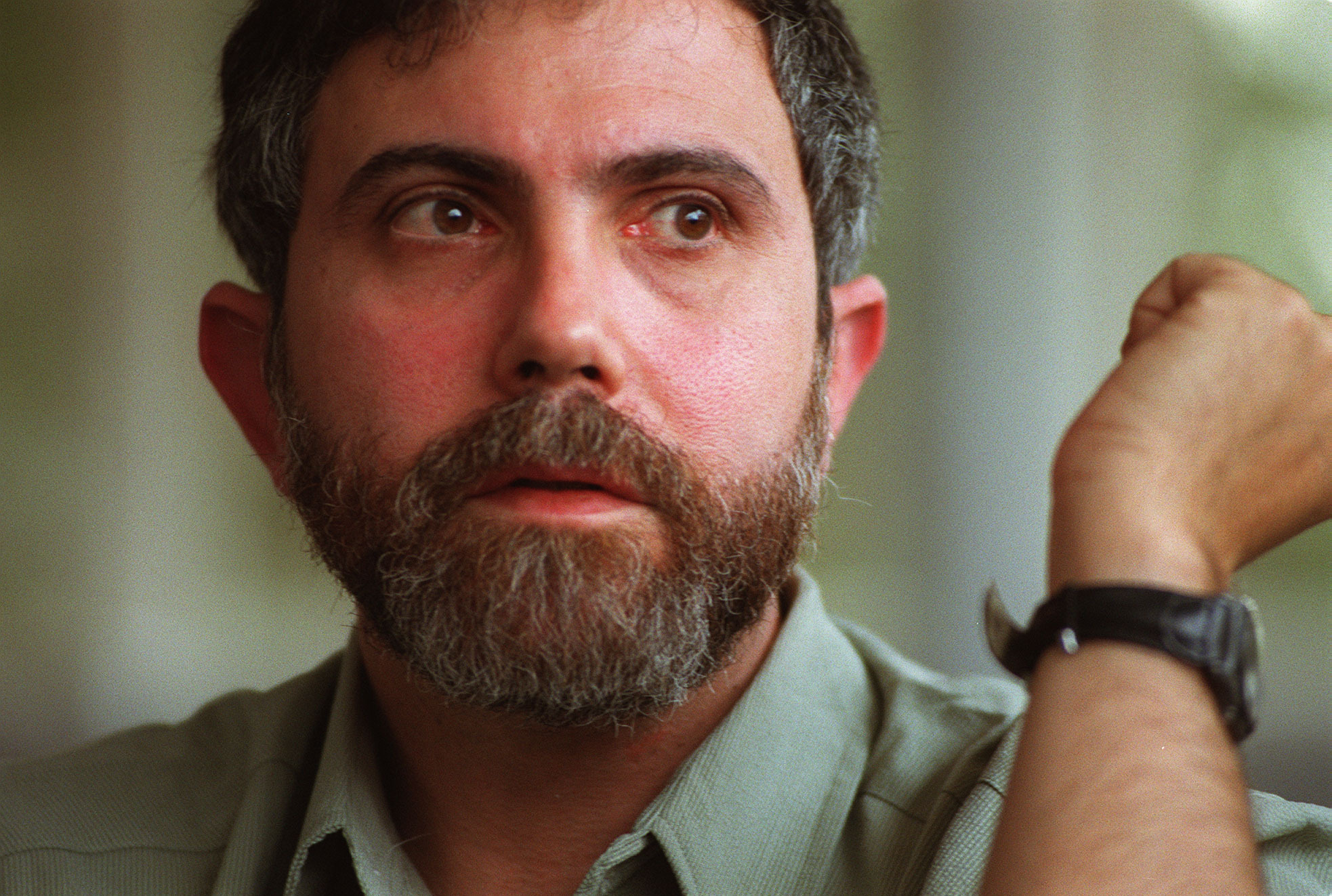Grounded Greatness: The Case For Smart Surface Transit In Future Cities
The Garden Of Last Debates (novel)
Deported (novel)
Empty Country (novel)
Trump’s Default: The Mist Of Empire (novel)
The 20% Growth Revolution: Nepal’s Path to Prosperity Through Kalkiism
Rethinking Trade: A Blueprint for a Just and Thriving Global Economy
The $500 Billion Pivot: How the India-US Alliance Can Reshape Global Trade
Trump’s Trade War
Peace For Taiwan Is Possible
Formula For Peace In Ukraine
A 2T Cut
Are We Frozen in Time?: Tech Progress, Social Stagnation
The Last Age of War, The First Age of Peace: Lord Kalki, Prophecies, and the Path to Global Redemption
AOC 2028: : The Future of American Progressivism
Can Trump strip Musk and Mamdani of their US citizenship?
Israeli official says country has accepted 60-day Gaza ceasefire deal detailed by Trump
Judge blocks Trump’s rule barring migrants at US-Mexico border from claiming asylum
Iran ready to enrich uranium to bomb-grade levels: "we can do that"
The Masterplan for Ukraine to Win the War Against Russia "Western half-measures have prolonged the war" and Ukraine can still win, but only with a "fundamental shift in Western strategy." ....... instead of providing too much aid, the West has provided too little, too late, and a large boost in military and economic pressure now could force a favorable outcome. .......... Russia has been ramping up drone attacks, while also making slow advances along the front lines, and recently seized a key lithium field in Eastern Ukraine, one seen as key to Ukraine’s mineral deal with the U.S. ........ Russia is much weaker economically than many analysts realize, and hard-hitting sanctions and export controls can still cripple its war economy ........ “Ukraine is fighting smartly and could turn the tide on the battlefield with more high-end drones, air defense systems, long-range missiles, and munitions. With a change of strategy, Ukraine can still win the war in the near term—if both Europe and the United States decide to give it the assistance it needs.” ....... and NATO appearing to pivot away from Ukraine at its most recent summit, where it appeared the primary agenda of most NATO nations was keeping the American president happy. ........ Putin was “personally invested in keeping Ukraine from becoming a European democracy, no matter the cost.” ......... “By assigning no agency to Ukraine or its foreign partners, it presumes that Ukrainian victory is a fantasy born of Western delusion, and it is a view that risks becoming a self-fulfilling prophecy,” he writes. “Both assumptions, meanwhile, rest on an excessively narrow reading of battlefield dynamics and a limited understanding of the policy options available to Ukraine’s backers.” ......... The author points to “impressive victories” by Ukraine, which include repelling the initial invasion, capturing land in the Kharkiv region, and the recent Operation Spider Web drone attack. The problem, he writes, is that Ukraine has often waited too long for delivery of weapons that have matched what the Russians are throwing at them. ............. Instead of prolonging the war by giving Ukraine too much military assistance, Kyiv’s foreign allies have prolonged it by giving too little, and often with significant delays” ........ “Despite these missteps, victory for Ukraine—minimally defined as preserving its sovereignty and continuing to chart a course toward NATO and EU membership—is still squarely within reach. Achieving it, however, requires a fundamental shift in Western strategy, one that combines a large boost in military assistance with more robust economic measures to constrain Russia’s war economy.”
ICE-Tracking App Surges in Popularity Following MAGA Meltdown
The Iranian Regime Has Already Fallen. The New Regime Is Worse.
Trump Kills Key Weapons Shipments to Ukraine as Putin Unleashes Hell
Italy could lose 20 billion euros in exports, 118,000 jobs with US tariffs, industry head says
Kirsten Gillibrand apologizes to Zohran Mamdani over ‘jihad’ claim
Trump's policies already cost US companies $82 billion — and that could 'more than double' tariffs and mass deportations will hurt American businesses and that the draconian Medicaid and SNAP (Supplemental Nutrition Assistance Program) cuts in his megabill will imperil vulnerable Americans. ........ Trump's tariffs "add about $82 billion in total new costs for all mid-sized U.S. companies, per a new estimate — a sum that would more than double if rates return to levels seen at the height of trade tensions in April." ........ Those tariff-related expenses, according to Brown, "could force" business owners "to shrink costs elsewhere, perhaps via layoffs." ....... "The cost amounts to 3 percent of their payroll — it's meaningful that they are paying that much to compensate for the tariffs." ...... Trump's "immigration crackdown is hitting key pockets of the economy, disrupting workplaces and communities around the country." ......... The sharp fall in immigration this year threatens to slow down economic growth, particularly in the sectors and cities that relied on newcomers to the U.S. in recent years…. There will be fewer workers to produce goods and services, slowing down growth and putting pressure on wages." ......... the U.S. economy "will find itself slightly diminished in the long run, and inflation will run a touch higher." ....... The 'big, beautiful bill' that passed the Senate contains about $175 billion for even more immigration enforcement.
We are going to have a deal, says Trump amid India-US trade deadlock India was ready to lower taxes for US companies, which could clear the path for an agreement staving off the 26% rate he announced on April 2. The reciprocal tariffs were suspended for 90 days by Trump, but the 10 percent baseline tariff continued to be in effect. ........ India has refused to budge on dairy, a sector employing over 80 million people in India, many of them smallholder farmers. ........ "We've dealt with Japan. I'm not sure we're going to make a deal. I doubt it," Trump said as he returned to Washington from a trip to Florida....... He claimed that Japan was rejecting American-grown rice, a demand Washington made that he called "an easy one," while selling millions of cars in the US.
#WATCH | On trade deals with India, US President Donald Trump says, "I think we are going to have a deal with India. And that is going to be a different kind of a deal. It is going to be a deal where we are able to go in and compete. Right now, India does not accept anybody in. I… pic.twitter.com/6c199NGm8B
— ANI (@ANI) July 1, 2025
Grounded Greatness: The Case For Smart Surface Transit In Future Cities
The Garden Of Last Debates (novel)
Deported (novel)
Empty Country (novel)
Trump’s Default: The Mist Of Empire (novel)
The 20% Growth Revolution: Nepal’s Path to Prosperity Through Kalkiism
Rethinking Trade: A Blueprint for a Just and Thriving Global Economy
The $500 Billion Pivot: How the India-US Alliance Can Reshape Global Trade
Trump’s Trade War
Peace For Taiwan Is Possible
Formula For Peace In Ukraine
A 2T Cut
Are We Frozen in Time?: Tech Progress, Social Stagnation
The Last Age of War, The First Age of Peace: Lord Kalki, Prophecies, and the Path to Global Redemption
AOC 2028: : The Future of American Progressivism
Grounded Greatness: The Case For Smart Surface Transit In Future Cities
The Garden Of Last Debates (novel)
Deported (novel)
Empty Country (novel)
Trump’s Default: The Mist Of Empire (novel)
The 20% Growth Revolution: Nepal’s Path to Prosperity Through Kalkiism
Rethinking Trade: A Blueprint for a Just and Thriving Global Economy
The $500 Billion Pivot: How the India-US Alliance Can Reshape Global Trade
Trump’s Trade War
Peace For Taiwan Is Possible
Formula For Peace In Ukraine
A 2T Cut
Are We Frozen in Time?: Tech Progress, Social Stagnation
The Last Age of War, The First Age of Peace: Lord Kalki, Prophecies, and the Path to Global Redemption
AOC 2028: : The Future of American Progressivism
Grounded Greatness: The Case For Smart Surface Transit In Future Cities
The Garden Of Last Debates (novel)
Deported (novel)
Empty Country (novel)
Trump’s Default: The Mist Of Empire (novel)
The 20% Growth Revolution: Nepal’s Path to Prosperity Through Kalkiism
Rethinking Trade: A Blueprint for a Just and Thriving Global Economy
The $500 Billion Pivot: How the India-US Alliance Can Reshape Global Trade
Trump’s Trade War
Peace For Taiwan Is Possible
Formula For Peace In Ukraine
A 2T Cut
Are We Frozen in Time?: Tech Progress, Social Stagnation
The Last Age of War, The First Age of Peace: Lord Kalki, Prophecies, and the Path to Global Redemption
AOC 2028: : The Future of American Progressivism
Grounded Greatness: The Case For Smart Surface Transit In Future Cities
The Garden Of Last Debates (novel)
Deported (novel)
Empty Country (novel)
Trump’s Default: The Mist Of Empire (novel)
The 20% Growth Revolution: Nepal’s Path to Prosperity Through Kalkiism
Rethinking Trade: A Blueprint for a Just and Thriving Global Economy
The $500 Billion Pivot: How the India-US Alliance Can Reshape Global Trade
Trump’s Trade War
Peace For Taiwan Is Possible
Formula For Peace In Ukraine
A 2T Cut
Are We Frozen in Time?: Tech Progress, Social Stagnation
The Last Age of War, The First Age of Peace: Lord Kalki, Prophecies, and the Path to Global Redemption
AOC 2028: : The Future of American Progressivism
Grounded Greatness: The Case For Smart Surface Transit In Future Cities
The Garden Of Last Debates (novel)
Deported (novel)
Empty Country (novel)
Trump’s Default: The Mist Of Empire (novel)
The 20% Growth Revolution: Nepal’s Path to Prosperity Through Kalkiism
Rethinking Trade: A Blueprint for a Just and Thriving Global Economy
The $500 Billion Pivot: How the India-US Alliance Can Reshape Global Trade
Trump’s Trade War
Peace For Taiwan Is Possible
Formula For Peace In Ukraine
A 2T Cut
Are We Frozen in Time?: Tech Progress, Social Stagnation
The Last Age of War, The First Age of Peace: Lord Kalki, Prophecies, and the Path to Global Redemption
AOC 2028: : The Future of American Progressivism
Grounded Greatness: The Case For Smart Surface Transit In Future Cities
The Garden Of Last Debates (novel)
Deported (novel)
Empty Country (novel)
Trump’s Default: The Mist Of Empire (novel)
The 20% Growth Revolution: Nepal’s Path to Prosperity Through Kalkiism
Rethinking Trade: A Blueprint for a Just and Thriving Global Economy
The $500 Billion Pivot: How the India-US Alliance Can Reshape Global Trade
Trump’s Trade War
Peace For Taiwan Is Possible
Formula For Peace In Ukraine
A 2T Cut
Are We Frozen in Time?: Tech Progress, Social Stagnation
The Last Age of War, The First Age of Peace: Lord Kalki, Prophecies, and the Path to Global Redemption
AOC 2028: : The Future of American Progressivism


